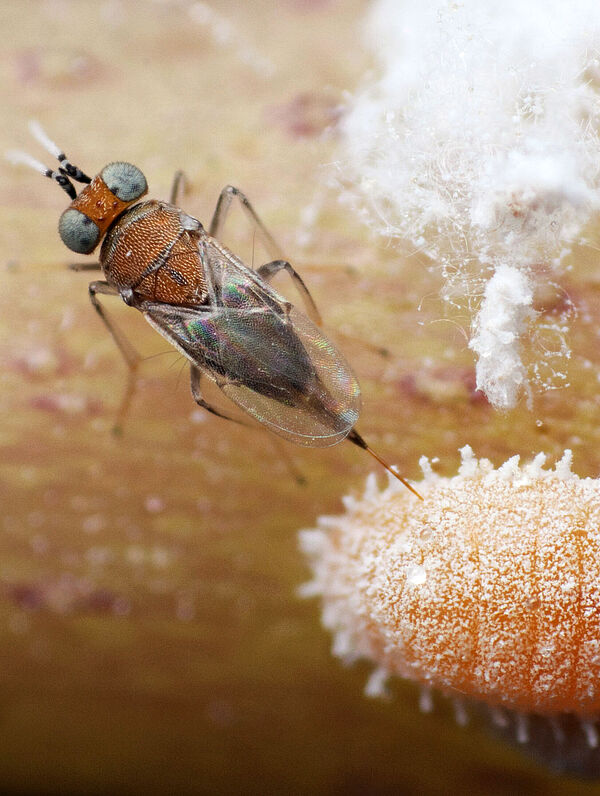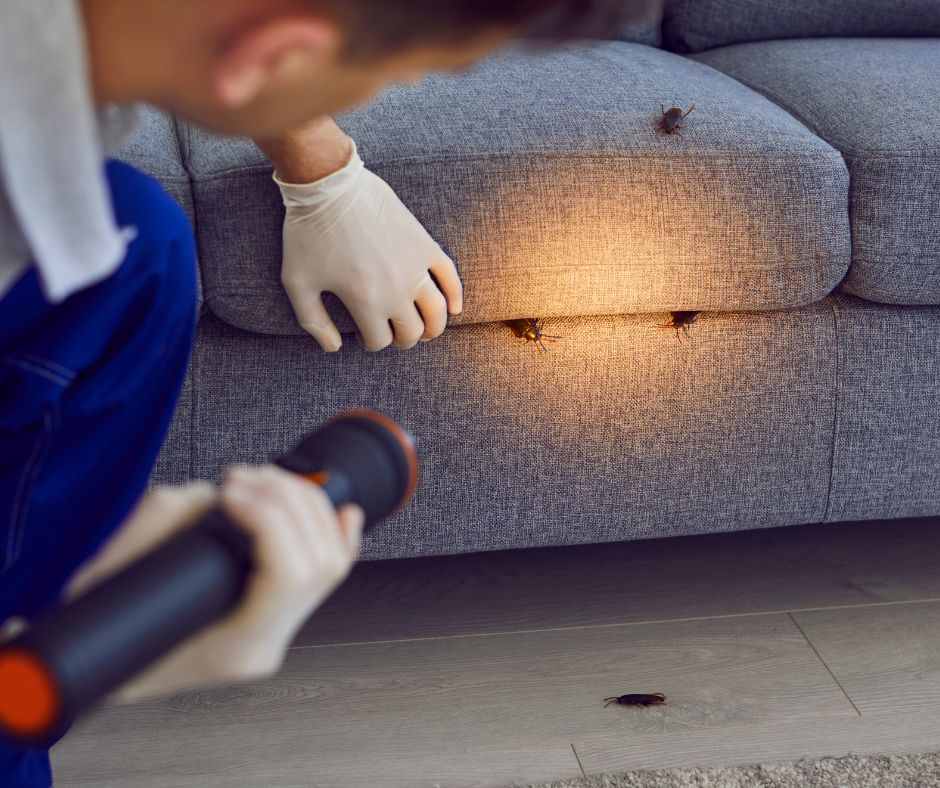Professional Rodent Control Port Charlotte to Stop Damage to Your Home
Wiki Article
Reveal the Value of Insect Control in Maintaining a Healthy And Balanced Atmosphere and Therapy Methods

The Role of Pests in Ecosystems
Parasites, commonly checked out entirely as nuisances, play a complex function in ecosystems that is essential for preserving ecological balance. They add significantly to various eco-friendly processes, including pollination, vitamins and mineral cycling, and parasite control. Numerous insect varieties, such as bees and butterflies, are essential pollinators for a large range of plants, which in turn sustains biodiversity and food production.Furthermore, pests work as prey for many predators, producing a critical link in food internet. This interdependence guarantees the survival of numerous species and aids regulate populaces within ecosystems (Termite treatment Port Charlotte). In addition, decomposer insects, such as specific beetles and fungis, contribute in breaking down natural issue, thus enhancing dirt and helping with vitamins and mineral recycling.
Alternatively, while pests can be useful, their overpopulation or intrusion right into non-native environments may interrupt these eco-friendly functions. This complexity highlights the relevance of recognizing pest dynamics, as efficient bug monitoring strategies must think about both their eco-friendly roles and prospective effect on human tasks. Stabilizing pest visibility while decreasing harm is important for protecting the stability of environments and making sure agricultural productivity.
Health And Wellness Dangers Connected With Bugs
The existence of bugs in different atmospheres prolongs beyond their environmental functions, as they additionally pose significant wellness threats to pets and people. Numerous pests, including pests, rats, and bloodsuckers, are service providers of conditions that can have major health effects. Rats are known to send hantavirus and leptospirosis, both of which can lead to serious breathing and kidney problems, respectively.Pests such as insects and ticks are notorious for spreading out vector-borne illness like jungle fever, dengue high temperature, and Lyme disease. These illnesses can lead to high morbidity and mortality prices, especially in susceptible populations. In addition, insects like bedbugs and roaches can intensify allergic reactions and asthma, adding to breathing problems in people, particularly those with pre-existing problems.
Additionally, the visibility of bugs can lead to mental stress and pain, impacting general well-being. Contamination of food and surfaces by pest droppings and continues to be can bring about foodborne diseases, highlighting the value of keeping hygienic problems. As a result, understanding the health and wellness threats related to bugs is essential in identifying the necessity of efficient parasite management methods to guard human and animal health and wellness.

Advantages of Efficient Bug Control
Efficient insect control is important for maintaining a secure and healthy environment, as it continually minimizes the countless threats connected with insect infestations. Among the main benefits of effective parasite administration is the reduction of health threats. Bugs such as rodents, roaches, and insects are vectors for conditions that can affect both people and animals. By controlling these populaces, the possibility of disease transmission is dramatically reduced.In addition, effective bug control safeguards residential or commercial property and frameworks from damage. Numerous parasites, like termites and carpenter ants, can trigger extensive structural damages that might require costly repair services. By proactively taking care of these property owners, problems and businesses can protect their investments.
One more considerable benefit is the renovation of total lifestyle. A pest-free setting adds to mental wellness and decreases tension related to problems. Effective pest control fosters a safer setting for pets and kids, making sure that homes stay havens totally free from disease-causing microorganisms and unsafe chemicals.
Usual Bug Control Methods

In the world of pest monitoring, different techniques are used to fight problems successfully. These techniques can be extensively categorized right into 3 primary approaches: cultural, mechanical, and chemical controls.
Social control includes customizing practices to minimize pest reproduction, facility, and survival. This may include plant rotation, appropriate hygiene, and habitat control, which jointly create a setting less favorable to pest spreading.
Mechanical control employs physical techniques to remove pests (Termite treatment Port Charlotte). Techniques such as vacuums, traps, and obstacles are generally used to directly eliminate bugs from a location. This strategy is particularly effective for handling rats and pests without making use of harmful chemicals
Chemical control includes the application of pesticides to handle bugs. These materials can be categorized into insecticides, fungicides, and herbicides, each targeting particular types of bugs. It is vital to make use of these chemicals deliberately, sticking to safety and security standards and laws to lessen prospective damage to non-target types and the atmosphere.
Each bug control method has its restrictions and advantages, and frequently, an integrated approach combining numerous approaches generates the most effective lead to preserving a pest-free atmosphere.
Sustainable Pest Management Practices
Lasting parasite administration methods encompass a range of methods created to reduce environmental influence while properly managing insect populations. These techniques focus on making use of eco-friendly techniques over chemical pesticides, thus reducing the threat of damage to non-target species, consisting of helpful bugs, wildlife, and human beings.Integrated Insect Management (IPM) is a keystone of sustainable practices, incorporating biological, social, mechanical, and chemical techniques to manage parasites. For example, biological control entails presenting natural killers or parasites to suppress bug populations. Social methods, such as plant rotation and polyculture, interfere with pest life cycles and boost environment strength.
Mechanical techniques, such as barriers or catches, can effectively stop pest gain access to without chemical treatment. Additionally, keeping healthy environments via proper dirt monitoring, plant health and wellness, and biodiversity can normally mitigate insect issues.
Education and understanding are important elements, encouraging individuals and neighborhoods to acknowledge parasite threats early and execute preventative measures. Termite treatment Port Charlotte. By fostering an all natural approach that balances insect control with eco-friendly honesty, sustainable insect administration techniques not just protect structures and plants yet additionally add to a healthier atmosphere for future generations
Final Thought

Comprehending the wellness risks connected with parasites is important in identifying the necessity of efficient bug monitoring strategies to protect animal and human health.
Effective bug control is crucial for maintaining a healthy and balanced and secure environment, as it constantly alleviates the countless risks associated with insect invasions.Integrated Parasite Monitoring (IPM) is a cornerstone of sustainable methods, integrating organic, social, mechanical, and chemical strategies to handle bugs. By recognizing the duty of parasites, recognizing associated health risks, and employing diverse treatment techniques, a sustainable method to pest administration can be accomplished. Integrated Insect Administration (IPM) highlights an alternative approach that alleviates harm to advantageous organisms while efficiently controlling pest populations.
Report this wiki page